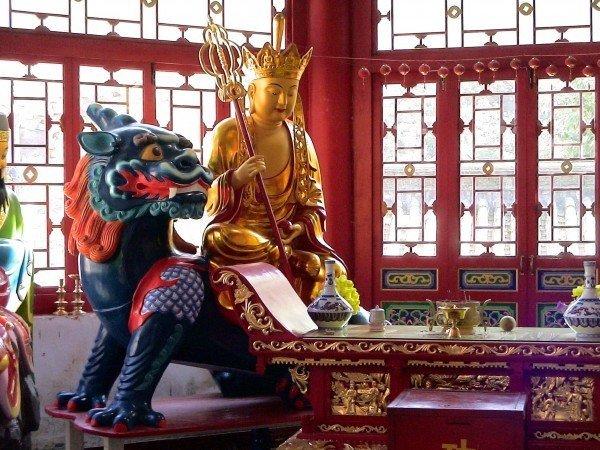What do the sky, water, and the concept of bagua divination have in common? These elements are believed to play a huge part in the Chinese mythology featuring ancient gods, goddesses, spirits, and supernatural beings. That being said, the exact number of gods in Chinese mythology is difficult to determine, as it includes a variety of deities with different sets of power.
In this article, we'll focus on the most commonly known ancient gods in Chinese mythology, as shown in the table below.
| God / Figure | Role and Power |
|---|---|
| Shang Di (上帝) | Sky god who ruled Heaven and gave power to kings. |
| Tian (天) | Heaven or sky; controls fate and decides who rules. |
| Pangu (盘古) | First being who created the world by splitting sky and earth. |
| Fuxi (伏羲) | Taught people how to fish, write, and read signs. |
| Nuwa (女娲) | Created humans and fixed the sky after it broke. |
| Shennong (神农) | Taught farming and discovered which plants are safe to eat. |
| Yellow Emperor (黄帝) | Helped unite tribes and invented tools and medicine. |
| Zhuanxu (颛顼) | Kept order in the sky and made rules for worship. |
| Emperor Ku (帝喾) | Wise ruler who supported farming and music. |
| Emperor Yao (尧) | Very fair ruler who chose the best person to lead after him. |
| Emperor Shun (舜) | Known for being kind and respectful; ruled with fairness. |
| Confucius (孔子) | Great teacher who taught morals and respect; honored as a wise man. |
| Jade Emperor (玉皇大帝) | King of Heaven who watches over gods and people. |

🙏Overview of Religion In China
China is often thought of as a country with no religion. That's not true; the Chinese people are fully religious, just not in the way that we are. In fact, they may be more religious than we are if you count every god, goddess and all the deities in their pantheon.
Furthermore, China boasts a substantial Muslim population and, with increased exposure to Western cultures, interest in Christianity is growing by leaps and bounds. There is even a small Jewish population in China; they've been there since around 800 CE.
Today, when China is credited for having any kind of religion which is believed to have association with ancient Gods, it is generally Taoism, Buddhism and Confucianism that come to mind.
Ancient Chinese gods are nothing like the omniscient, omnipotent God revered in Abrahamic religions. By comparison, the gods of China are pretty hands-off. Still, for operating under such limitations, Chinese mythology's gods are an amazing bunch.
🧓Given the diversity of China's spiritual practice, it is estimated that there are thousands of gods in Chinese mythology, encompassing major deities, minor spirits, and local gods.
🧓The exact number is fluid, as new deities have been introduced and worshipped over centuries, while others have faded into obscurity. The richness of Chinese mythology reflects the complex cultural and religious history of China.
🌀Chinese Ancient Gods: Origins of the Universe Mythology
People of deep faith tend to resent the term 'creation myth' because it feels like their beliefs are being mocked. By using this phrase, we don't intend any disrespect to anyone's beliefs, no matter what they are.
Every civilisation has its origin stories. The Ancient Egyptians worshipped the Sun god Ra, Thor was the Norse god of thunder, and Arianrhod is the Celtic goddess of the moon and stars. In this sense, every society has its creation myths, so China's mythology fits right in.
Where it differs is in the gods' accessibility, longevity and number. Chinese mythology has far fewer gods than most other creation myths, but they are usually associated with the following names:
💥Shang Di (上帝)
If any of China's gods could be called a creator, Shang Di would be. He makes his first appearance in literature around 700 BC; stories involving him date much further back - specifically, the Shang dynasty (ca. 1760 - 1050 BCE). His name translates to Above Emperor; he is also called the God in Heaven.
There are no drawings of him, but written texts describe him well. He is male, compassionate and emotional, intellectual and just. No great feats are attributed to him. He fought no wars, he did not lead a people... the clearest picture we get of Shang Di is from texts written during the Han dynasty (206 BCE - 222 CE).
💥Tian (天)
In direct contrast with Shang Di, Tian takes no human form. Literally translated, Tian is heaven - perhaps a more significant concept than in Western religions because, at some point in ancient history, the line separating Shang Di and Tian blurred to the point that referring to Tian implied the celestial father.
For a time, they were both worshipped as a single entity; thus, the inspiration for the Temple of Heaven in Beijing, which is also a UNESCO World Heritage Site.
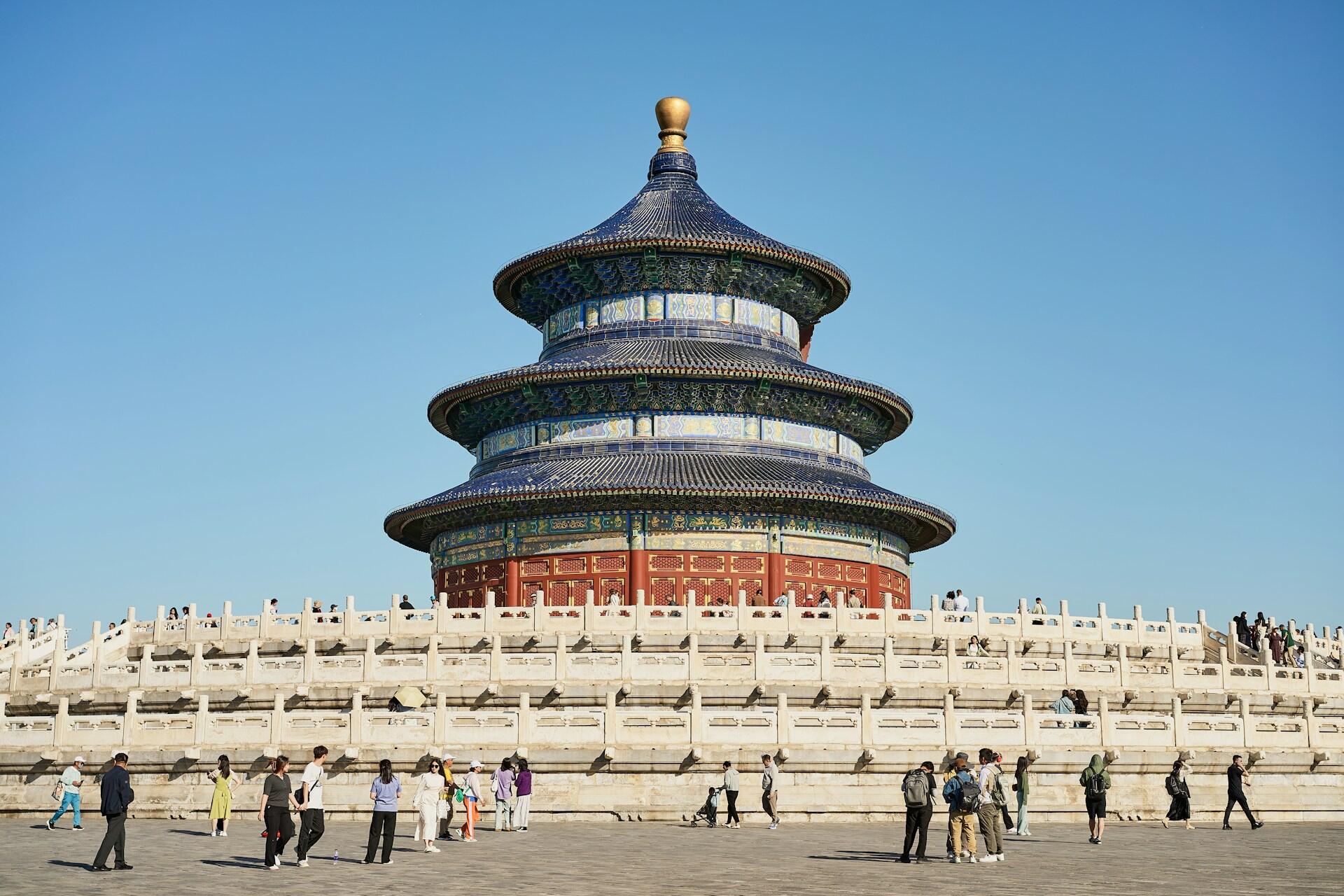
💥Pangu (盘古)
Now we meet the first corporeal creature in the pantheon of Chinese gods. In the beginning, there was a formless and primordial nothing. Of this, nothing emerged an egg. For 18,000 years it waited, until Yin and Yang, those duelling energy forces, were balanced. Once they were, Pangu emerged from the egg. Then, with his giant axe, he set about creating the world.
One mighty swing sent the heavy Yin into freefall; it became the earth. Yang, now free of the heavy weight of Yin, floated skyward. Pangu took up his station between them to keep them in their proper place.
After another 18,000 years had passed, Pangu met his end. As he was laid to rest, different parts of his body were believed to form different parts of the world, as shown in the list below:
- Eyes: His left eye became the sun, and his right one, the moon
- Voice: Became the thunder
- Breath: Became the wind
- Body: Shaped the land, mountains and valleys.
- Fur covering his body: Formed the trees, bushes and grass of the earth
- Blood: Became the rivers

👑Three Sovereigns and Five Emperors 三皇五帝
Unlike Abrahamic religions, there is no hierarchy in the Chinese belief systems, even though it might seem so. True, some deities are granted more importance, but seldom does one god or goddess pull rank on another one. Among them, the three sovereigns and five emperors are known as methodological and divine figures, which eventually influenced many beliefs of the Chinese society, even until today.
⚡Fuxi (伏羲)
- Brother of Nuwa
- Believed to teach people how to hunt and fish with nets, and domesticate animals for farming
- Believed to teach people to write and the concept of bagua (divination)
⚡Nuwa (女娲)
- Sister of Fuxi
- Believed to be the creator of humans by moulding yellow earth into human form
- Believed to repair the Pillars of Heaven when disasters struck the earth
⚡Shennong (神农)
- Believed to be the divine farmer who taught ancient people agriculture and medicine
- Believed to have tasted hundreds of herbs to ensure they are safe to be eaten
🧔♂️The Five Emperors
The Five Emperors are partially considered mythological figures with cultural significance, but they are the embodiment of benevolence, good deeds and sterling leadership. That's why ancient society back then viewed them as objects of worship.
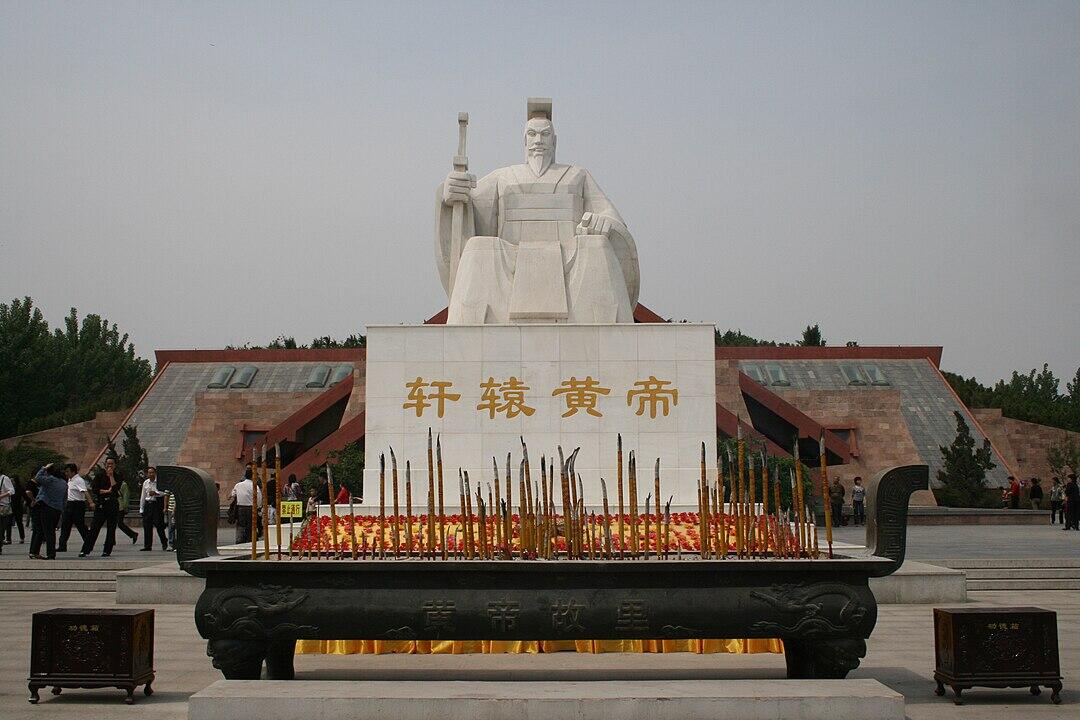
Many Chinese today view them as once living people whose deeds and characteristics everyone should aspire to emulate.
Viewed as the ancestor of Chinese civilisation, who united all the tribes under one alliance
Grandson of Huang Di, who introduced music rituals and the calendar system
Nephew of Zhuanxu and great-grandson of the Yellow Emperor, known for his pursuit of justice during governance
Emperor Ku's second son. His elder brother was forced to abdicate because he was a weak ruler. Became a ruler known for integrity and benevolence
Yao surrendered his throne to Shun because of his extraordinary moral virtue and piety
Did you know that Shun was not a blood relative of Emperor Yao?
According to classical texts like the Book of Documents (尚书) and Records of the Grand Historian (史记), Emperor Yao's nine sons lived what we would call the party life.
The emperor could not see leaving power to any of them, so he asked his advisers who might qualify to succeed him.
Shun, who had worked in various ministerial positions, was brought forth.
Wait a minute! We're talking about emperors, not about any deity? What is Chinese mythology about, then?
🏯Deities of the Tao, Confucian and Buddha
As previously mentioned, Taoism, Buddhism, and Confucianism remain the most influential traditions linked to ancient Chinese deities that continue to be worshipped in contemporary practice.
In some respects, that is correct: they each have a temple in every city, and people go there to pray and perform rituals.
Taoism can refer to both philosophical and religious aspects. As a philosophy, it was popularised by Laozi (老子), who wrote Tao Te Ching to introduce noble values. As a religion, Yu Huang (also known as the Jade Emperor) is believed as the deity who has ruling power.
🏮 Deities Associated with Taoism and Buddhism
Mythical figures in Chinese belief systems each have particular powers or license to grant certain favours, but no god or goddess has wide-ranging powers.
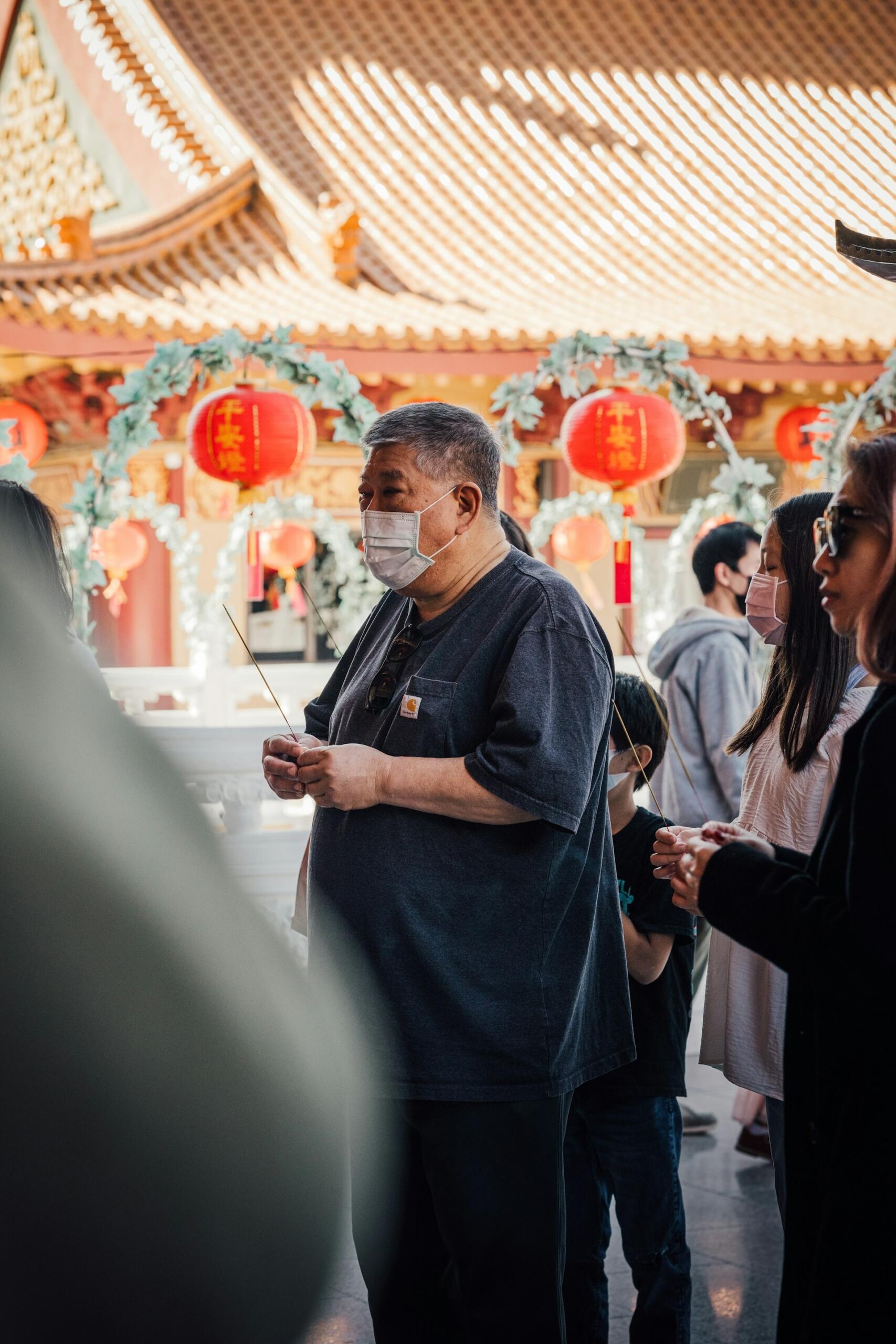
So, you have to know that praying to Guan Yin (a Buddha goddess) is a plea for mercy and compassion and making an offering to Xi Wang-Mu (associated with Taoism) means you hope for long life.
Confucius, though holding equal footing in China's mythology and more than one temple dedicated to him, has no associated gods.
When people worship Confucius or light incense at his statue, they are venerating that great sage, not asking for help with anything. In some Confucian temples, they even let you bang a gong - usually if you make a donation first.
🟩 Yu Huang (玉皇)
Yu Huang, also known as the Jade Emperor, is a god of the Tao belief system. He's the ruler of heaven and earth, as well as the official deity of the human emperors. Because he is one of the most important gods, his court is full of gods and goddesses.
To know why Chinese mythology is so important in everyday life, you have to understand the large role the Jade Emperor plays in their creation myths.
🈶Learn About Chinese Mythology and The Language With Superprof
If this article has ignited your interest towards Chinese mythology, you might want to take this to the next level by learning the Chinese language too. Perhaps, you have a friend who is a native Chinese speaker or you plan to visit various temples in China one day, so why not master simple pinyin, Chinese characters and phrases as well as Chinese cultural knowledge along the way too?
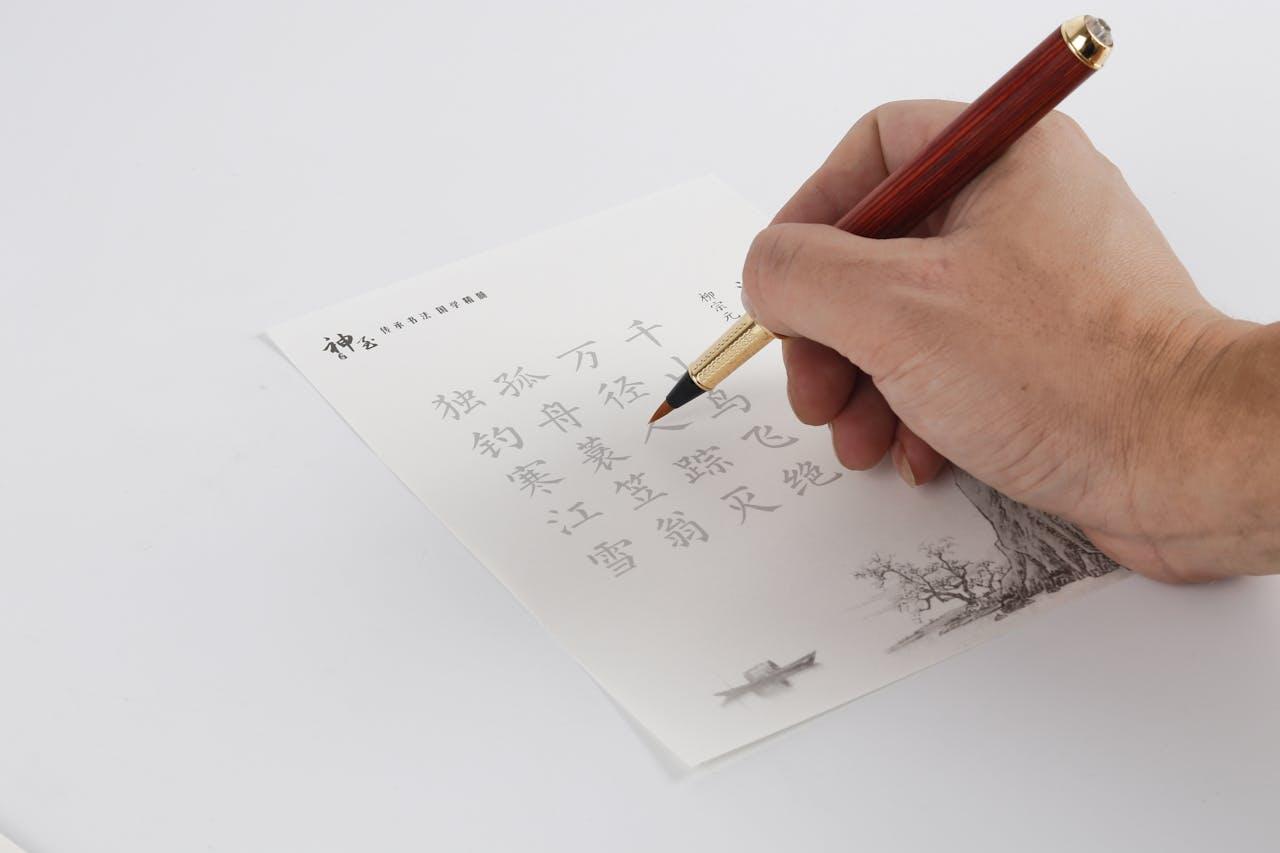
At Superprof, you can connect with an experienced and qualified native Chinese speaker to learn Chinese regardless of your learning level, from beginner, intermediate or advanced level. At one glance, you can view the tutors' teaching experience, qualifications, methodology, and hourly rates. Once you have confirmed the details, you can proceed to book your first lesson with him or her.
It's never too late to begin your Chinese learning journey with Superprof!
The journey with a 1000 miles begins with one step.
Confucius

